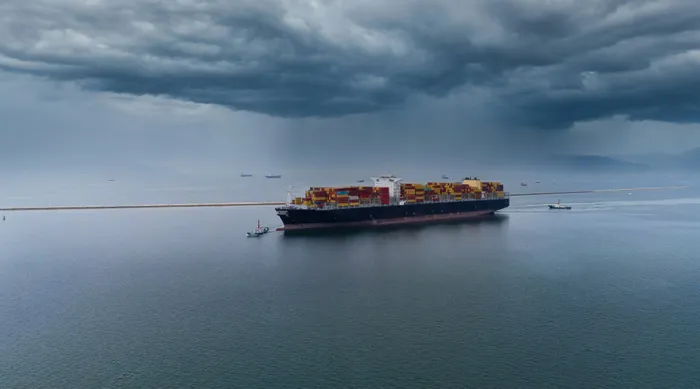Why global cooperation is key to navigating stormy economic waters

Cooperation can improve the national and economic security of nations, regions and the world. Picture: Getty Images/iStockphoto
By Mohammed Aljadaan
Not to oversimplify it, but there are largely two choices for countries and their policy-makers: find ways to achieve global cooperation or risk the damaging effects of fragmentation.
The stakes are high, and the path forward is clear. Collaboration at both regional and global levels is not just desirable – it is essential.
It is in the self-interest of nations to ensure that all countries grow and prosper, benefiting their people equitably. Poverty, desperation and inequality do not respect borders.
We see this most acutely in low-income countries where systemic challenges often drive people to take great personal risks – crossing treacherous borders and dangerous seas – in search of a better life for their families or, at times, mere survival.
As these individuals leave their home countries, those nations suffer a critical loss of talent and potential. For example, many Sub-Saharan African nations lose a third or more of their most skilled citizens to other countries.
There is a compelling urgency to work together to improve their lives and livelihoods in tangible and durable ways. Responding effectively is both a moral imperative and essential to the stability and prosperity of all nations, not just lower-income countries.
Repairing the leaks in our global economic ship
Dynamic economies require dynamic collaboration among a community of nations and economic actors, since our fates are closely aligned. Improving the prospects of emerging market and development economies (EMDEs) is not just a lifeline for their people, but also a direct benefit to higher-income countries.
As incomes rise in EMDEs, their populations become consumers of higher-value goods and services, creating expanded markets for wealthier nations. Economic integration promotes stability, as nations that trade together and share interdependent supply chains are less likely to experience conflicts or disruptions.
Moreover, when EMDEs become more resilient to economic shocks, global health crises or climate threats, their citizens are less likely to feel compelled to migrate in search of opportunity. Instead, they can contribute to building stronger local economies and communities and these improvements are global public goods that benefit all nations, not just the poorest.
The key to achieving these outcomes is cooperation. Whether through bilateral agreements, multilateral engagements or professional partnerships, nations must come together to repair the “leaks” in our global economic ship.
Ignoring the challenges faced by EMDEs is not an option. Failed states, economic instability and social unrest inevitably spill over borders, turning local crises into global problems.
In short, we are all in the same boat. It is in our collective interest to ensure that the ship we sail together is seaworthy and capable of navigating the storms ahead.
Adapting our institutions to a new global economic reality
The world’s economic balance of power has shifted dramatically in recent decades, as EMDEs now represent nearly 60% of global GDP – increasing the incomes and well-being of billions of people. Their populations are younger, their economies are more adaptable and they have a growing stake in the future global economy.
Given these new power centres, our global governance must continue to adjust quickly and decisively to tackle tough challenges – such as poverty and inequality, or energy security – in ways that respect the shift in economic power and often diverse national circumstances.
Global institutions like the World Trade Organization, the International Monetary Fund (IMF) and the World Bank must adapt and help their member states navigate in this new and uncertain environment.
New partnerships and forums for global cooperation
This work will require new partnerships and new forums to build trust, and to strengthen markets and institutions.
For example, the IMF and the Kingdom of Saudi Arabia will in February 2025 sponsor a high-level annual conference in Al-Ula, Saudi Arabia, to explore innovative solutions to address the challenges faced by emerging market economies. Participants will discuss policies and reforms to spur inclusive prosperity and build resilience, supported by strong global cooperation.
The pathway to prosperity requires countries to focus on the common ground they share with their neighbours and trading partners – not just their differences. Smart and self-interested collaboration, where interests overlap, can improve the national and economic security of nations, regions and the world – not just now, but for generations to come.
Working together to improve our global economic ship so it benefits more people is not a charitable act, rather it is a wise investment in our common future.

His Excellency Mohammed Aljadaan is the Minister of Finance of Saudi Arabia.
BUSINESS REPORT